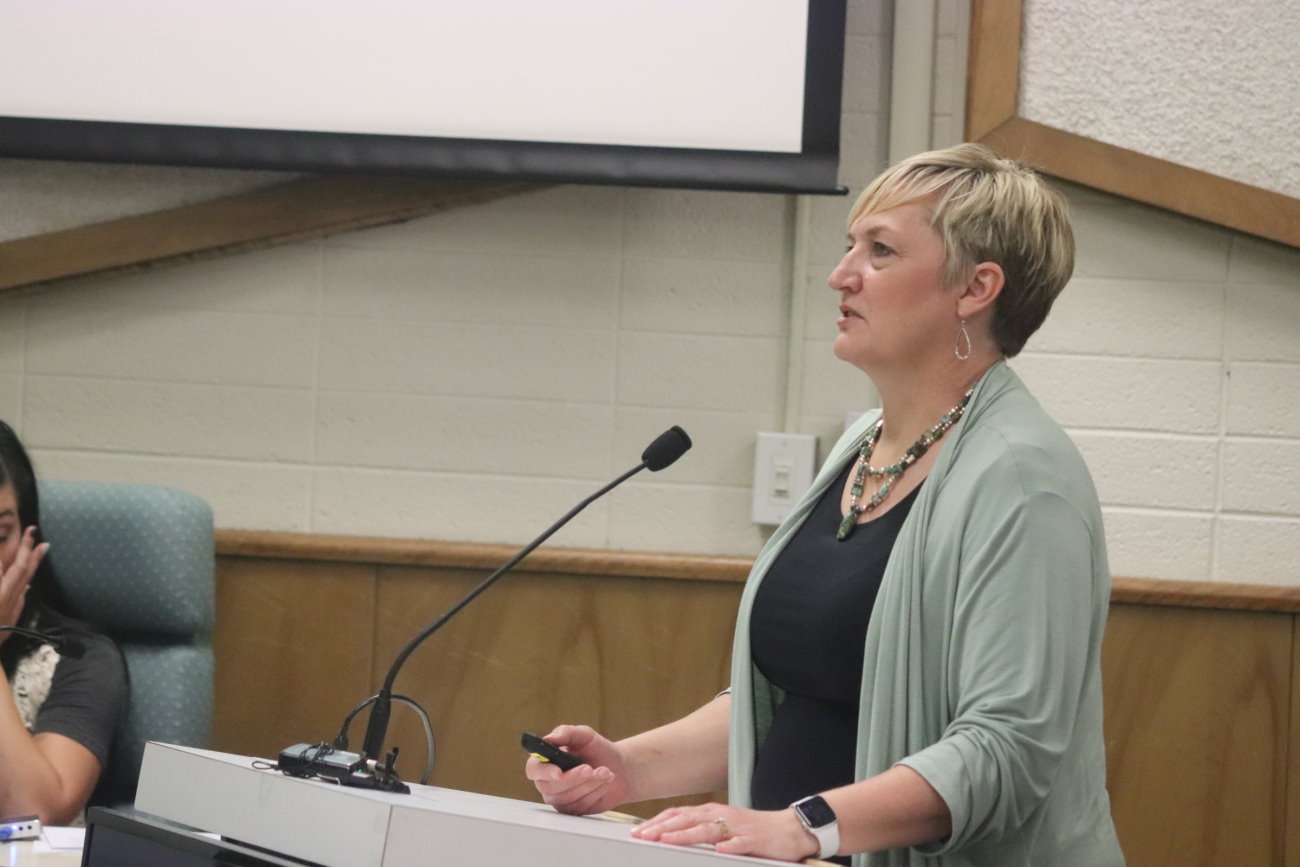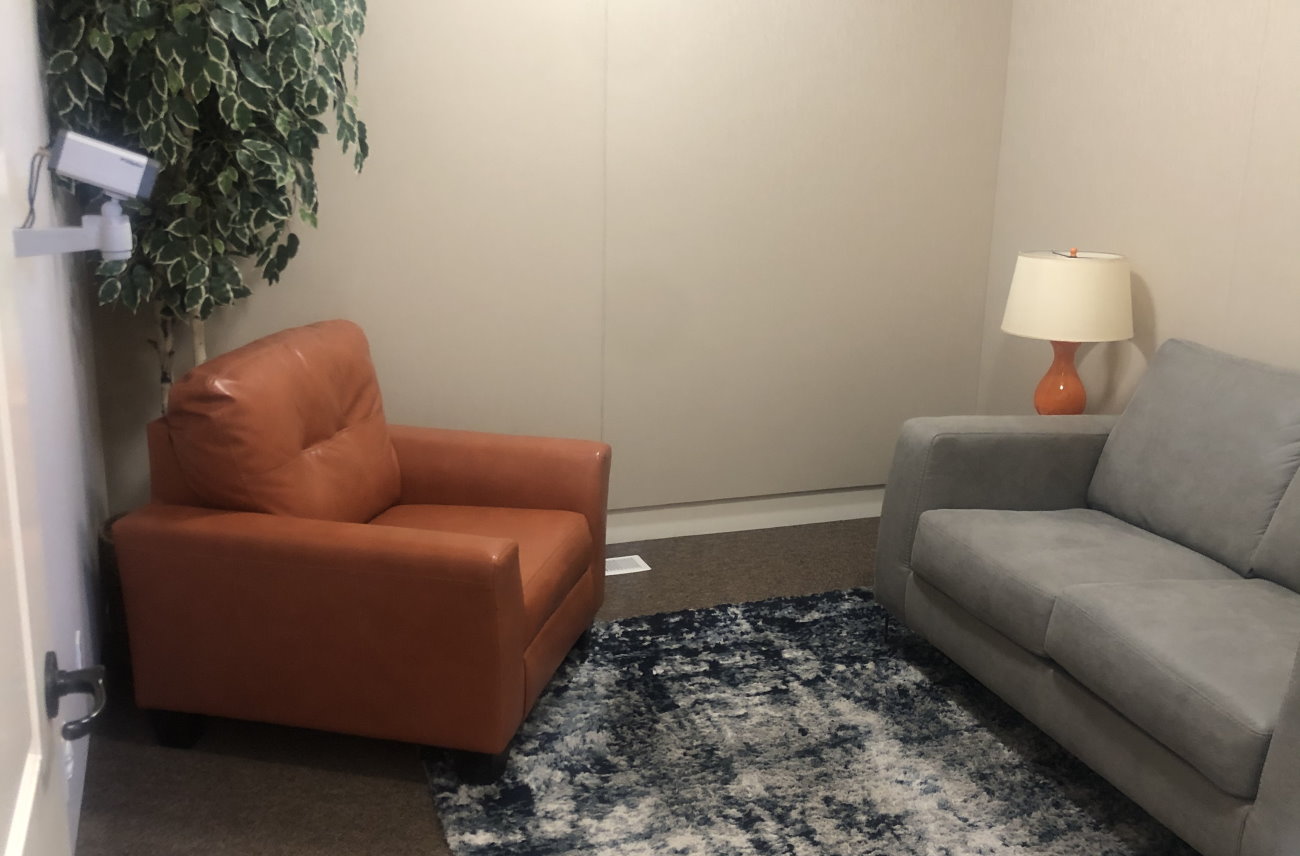ST. GEORGE — Rather than focus on the typically sobering numbers related to the work the Washington County Children’s Center has provided in previous reports, the center’s director shared what she called the center’s “mental health successes” with the Washington County Commission last week.

“The big news is the expansion of the mental health services,” Kristy Pike, the center’s director, told St. George News. “We have been doing so much to help kids overcome trauma.”
Every March and August, Kristy Pike gives a report to the Washington County Commission as required by the Victims of Crime Act (VOCA) grant the center receives each year. The grant goes a long way in funding the activities and staff of the center year-to-year.
The Children’s Justice Center provides a place where children who have experienced abuse of any sort can be interviewed in an environment geared to feel more inviting and open than a police station. Once inside, the child meets with a forensic interviewer during a session that is also recorded and watched by law enforcement and others in another room. From there the child is referred to medical and mental health services as deemed necessary.
Other services the nonprofit center offers include victim advocacy, preparing protective orders and helping the children and their families find aid in various ways.
Previous biannual reports have included the number of how many cases it handled over the previous year and gave a snapshot of the types of allegations and individuals involved. This time Pike focused more on the center’s mental health services, which have expanded over the last several months.

During the first half of 2022, the center referred 101 clients to therapy services, Pike said.
Of this number, 54 (52%) attended at least one appointment with 41 (76% of the original 54) of those clients going on to attend three or more therapy sessions. Nationally, the numbers have 30-37% attending the first session with 40-60% of that dropping out along the way.
“As you can see, we’re doing much better than that,” Pike told the commission and credited the higher numbers to the work of Melissa Boles, the center’s mental health services coordinator.
“She’s done an amazing job of following up with clients,” Pike added. “When we brought her on, we told her that her No. 1 job was to sit down with families and figure out what the barriers were for them to get their kids to therapy, and then figure out how we were going to overcome those barriers.”
This is why the center offers therapy in multiple settings, be it at the center itself, at a school, at a contracted therapist’s office or through telehealth appointments.
The center also conducted 93 traumatic-stress screenings during the first half of the year that had an average score of 22.7. Anything over 20 is considered high. The screenings test for possible cases of post-traumatic stress disorder and suicidality.

These screenings include basic questions about sleep, memory triggers, objects of avoidance and mood disturbances. As children can be good actors when it comes to getting parents to overlook something that’s bothering them, the screenings can help shed light on issues troubling the child in question.
“We may not know one of our teenagers is having a hard time sleeping at night or that they’re avoiding the locker room. We just might not know those things,” Pike said. “When Melissa does a screener with kids, and then sits down with the child and the parents, and talks through what the results of that screener are, suddenly parents have a much better idea of what’s really going on with their kids in terms of mental health.”
The children’s justice center was also able to hire a second, full-time therapist who provides mental health services for children in the rural parts of the county. The new therapist is also bilingual, which has allowed the center to offer Spanish-speaking mental health services that “are of great demand in the county,” Pike said.
The new therapist’s position is fully funded by a grant from the Cambia Health Foundation.
Following the commission meeting, Pike told St. George News the mental health services the center provides can help keep victims of childhood abuse, as well as keep the community safe.
Pike mentioned studies done by academics that she came across in her own research on childhood mental health that noted a connection between mass shooters and childhood trauma, also known as “adverse childhood experiences.”

The adverse experiences included child abuse, mental health problems, family dysfunction and other factors.
“The work we’re doing with mental health is so essential for our community,” Pike said. “It addresses those things before they become a big issue, and it helps children live healthy, happy lives throughout their lifetime. It helps not only their mental health but also their physical health, and it can help us have a safer community in the long run.”
As for what people can do to help, Pike said they can and should report potential cases of child abuse. Moreover, such action is required under Utah law. Additionally, she previously stated that adults need to be worthy of a child’s trust. That way, if that child is abused, they’ll feel safe about approaching the adult with their problem, she said.
“When I talk to kids, I tell them, ‘Please, if something happens that concerns you that doesn’t feel right, please talk to a trustworthy adult, an adult that’ll do the right thing every time,’” Pike said.
For those who believe they or someone they know needs the help of the Washington County Children’s Justice Center, call 435-634-1134, visit the center’s website or call Utah’s 24-hour child abuse reporting hotline: 1-855-323-3237.
Copyright St. George News, SaintGeorgeUtah.com LLC, 2022, all rights reserved.